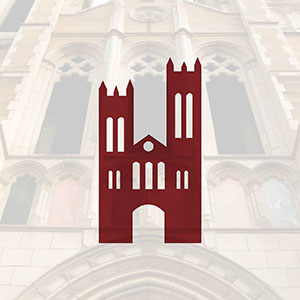
Tim knew that leading a faith community the size of ours came with a role and responsibility to occupy a presence in the surrounding community on behalf of the church. He added his voice to the leadership mix in the arena of higher education, serving on the Texas Wesleyan Board, Southwestern University Board, and the Perkins School of Theology Executive Board. He also connected our church with our downtown business community (and nearest neighbors) with his service to the Downtown Rotary Board, Downtown Fort Worth Inc. Board of Directors, the Habitat for Humanity Advisory Board, and the Mayor’s Faith Cabinet.
Four years in a row, 2019, 2020, 2021, and 2022 Tim was named to the Fort Worth 400, recognizing his leadership among the 400 most influential leaders in Fort Worth, identified by Fort Worth, Texas magazine as “people in Tarrant County who wield significant influence in industry, philanthropy, nonprofits, government and public policy, economic development, professional services, education, civic affairs, arts, religion, sports, and media, or within their own spheres.”
Connecting Faith Communities
Membership in the Cowtown Clerics, an interfaith organization of Fort Worth area clergy, and Tarrant Area Community of Churches (Now Tarrant Churches Together), and the Multicultural Alliance connected us through Tim to the myriad of other faith communities in our geographic area. As part of these organizations our church was often propelled front and center in leading compassionate interfaith dialog through major events including Candles for Connecticut following the Sandy Hook Elementary mass shooting and Pathways to Peace in response to other troublesome events involving faith and community. Moving a little further down I-35 to Austin, the Texas Methodist Foundation tapped his wisdom as a board member for twelve years.

Strong Leadership Through Unprecedented Times
When the COVID -19 pandemic struck, our church stepped forward as a community leader by making the proactive and gutsy calls, first in March when the pandemic began and again in November, 2020 when a surge pushed the risk once again to an unacceptably high level, to halt all in-person services and classes until Tarrant County Public Health Officials advised us that it was safe to hold them again.
Tracey Barnett, PhD, who serves as Chair of the Department of Biostatistics & Epidemiology at University of North Texas Health Science Center is a church member who stepped forward to serve both to her church and community during this unprecedented time to help FUMCFW find resources and process the information coming from local, county, state and national agencies to help inform our decisions. Remembering that very first meeting when Tim called together the clergy and program staff to discuss the impending pandemic (it had not yet arrived in Fort Worth, but projections were already getting dire), Tracey says, “none of us knew what to do. None of us were even masking yet — it was all just starting and very little was known about the virus and how it actually spread.”
The immediate question before the group was “what do we do about THIS Sunday?” We had reports and projections, but nothing was certain. Trying to balance the awareness of how dangerous gathering for worship could be for our most vulnerable members with the understanding that church is where we go for comfort in times of crisis had the discussion seesawing, back and forth, regarding the coming Sunday and setting a precedent for future decision making. “As a group we’d keep getting close to a decision, then we’d pull back,” she remembers. “Then Tim took the lead and said, ‘here’s what we’re going to do. We can’t do otherwise and risk the safety of the most vulnerable members who, inevitably, will be the first ones through the doors.’”
“I’m so proud of First Church,” Tracey continues. “We were the first to make the decision to close our campus and take everything online while every other church in our community was watching to see who would be the first to jump off that cliff. It was a courageous decision, made for all the right reasons. And, as the pandemic unfolded, it is very easy to see that Tim really did lead us in the right direction.”
From the public health and community leadership standpoint, Tracey says that our decisions to close our campus, bought hospitals more time and space, prevented untold illness and death in our own congregation and beyond, and helped alleviate the burden on first responders and emergency response.
And then, a few weeks into the shutdown when the pandemic had fully reached Tarrant County and numbers were climbing, Tim again stepped up among community clergy leaders who banded together and signed a Fort Worth Star Telegram Op-Ed letter imploring other churches in our community not to gather for Easter and Holy Week observations. The piece, written by Tom Plumbley, senior minister at First Christian Church, on behalf of an interfaith group of clergy including Tim, along with Warner M. Bailey, Brite Divinity School, TCU; Terry Boggs, Cook Children’s Hospital; Dottie Cook, South Hills Christian Church; Charles Johnson, Pastors for Texas Children; Andy Mangum, Christian Church in the Southwest Region; Ralph Mecklenburger, Temple Beth-El (emeritus); Russ Peterman, University Christian Church; Rev. Dr. Fritz Ritsch, St. Stephen Presbyterian Church; Karl Travis, Presbyterian Church (USA); Janet Waggoner, Episcopal Diocese of Fort Worth; Newell Williams, Brite Divinity School; and Brian Zimmerman, Temple Beth-El.
“Messages from state and federal government are mixed,” the group acknowledges, “but we join our voices to say large worship gatherings are both unwise and theologically suspect. We would love to say to our congregations that the threat is over and we can come together for Easter and Passover as usual. But we cannot in good conscience do so.”
Never a one-and done decision, the clergy and program staff, led by Tim and Co-Senior Pastor, Rev. Lance Marshall , and empowered by the vote of Church Council to make the “open-and-close” decisions as the situations continued to unfold, continued to meet regularly to evaluate and re-evaluate our course, adaptations, and how we could continue to safely support our congregation and our community. The decision to close our campus again in November 2020 came under sharp criticism from some, gratitude from others as the COVID-19 pandemic hit record levels in Tarrant County.
In an article by reporter Jack Howland published November 21 in the Fort Worth Star Telegram, Tim said in a phone interview, “If possible right now, people oughta stay home and keep our community safe. We don’t want to have a situation where we’re having to set up a field hospital.” The church, he said, didn’t find out until later the decision was in-line with the urgent advice from Tarrant County Judge Glen Whitley, who on Tuesday pleaded with churches to “move to online services as coronavirus infections have been rocketing across the county.”
“The COVID-19 pandemic has been a tremendous challenge for everyone, the church included,” Tim reflects. “I could not be prouder of the clergy, staff, and lay leadership of our church. I’m grateful for all the many creative ways we were able to respond to the demands and challenges of this time—all due to the hard work and ingenuity of so many people. It has been a blessing to be leading alongside our Lance. He has demonstrated time and again his readiness to take on the leadership challenges of whatever comes our way.”

